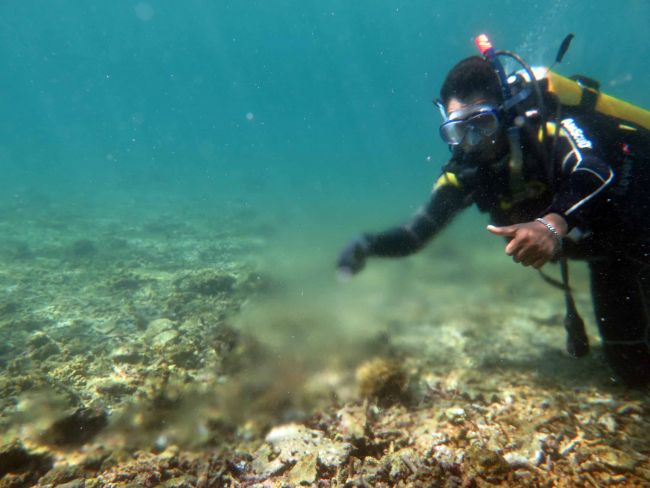19/02/2024 | A new study warns against the profound effects of climate change on groundwater in coastal areas, which is an important water resource for millions of people. The work, led by the University of California in cooperation with other institutes such as the Leibniz Centre for Tropical Marine Research (ZMT) in Bremen, brings together and evaluates current findings from 140 studies on the complex web of climate impacts and anthropogenic influences on coastal groundwater.
With almost 40% of the world's population living within 100 km of the Earth's coasts, groundwater in coastal areas plays a crucial role in the supply of drinking water and agriculture. In addition, groundwater is an important source of freshwater and nutrients for coastal marine habitats, but its exact influence is not yet fully understood. Groundwater in densely populated coastal regions, i.e. at the interface between land and sea, is very vulnerable to changes caused by climate change and humans.
Rising sea levels and coastal flooding as a result of global warming can cause seawater to infiltrate the groundwater and cause it to become saline. The groundwater supplies in coastal areas are then no longer suitable for daily use or irrigation in agriculture. In Germany, too, salinization of the coastal aquifers can be observed - these are the rock layers in which the groundwater circulates.
Many influences on coastal groundwater that have barely been researched should be urgently taken into account
The authors of the study point to other factors that have not yet been researched, such as changes in wind speed, ocean chemistry, coastal erosion and ice and snow melt, which can be attributed to climate change and have a negative impact on groundwater. Hurricanes lead to coastal flooding, rising groundwater levels increase coastal erosion, which in turn attacks the aquifers. Both lead to increased salt input.
While most research projects to date have focused on changes in circulation and distribution as well as salinity in groundwater, the study emphasizes that many often neglected aspects of chemistry and biology must also be taken into account. For example, changing physico-chemical conditions such as salinity, nutrient and oxygen content as well as temperature also influence the microbial communities in coastal aquifers.
Human-induced stressors such as groundwater abstraction and fertilizer use must also be considered, as they interact with climate change and amplify its effects. Co-author Kay Davis, marine biogeochemist at ZMT, warns: "Three percent of coastal groundwater systems are at risk of drying up completely by 2080, which would affect the freshwater supply of about 375 million people".
In view of this scenario, the study emphasizes how urgent it is to monitor both climatic and human-induced stress factors while taking into account hydrogeological, chemical and biological processes at the boundary between land and ocean. Such a holistic approach is essential to understand the changes in coastal groundwater and to support resource management.
Publication
Richardson, C.M., Davis, K.L., Ruiz-González, C., Guimond, J.A., Michael, H.A., Paldor, A., Moosdorf, N., Paytan, A., 2024. The impacts of climate change on coastal groundwater. Nature Reviews Earth & Environment. DOI https://doi.org/10.1038/s43017-023-00500-2





